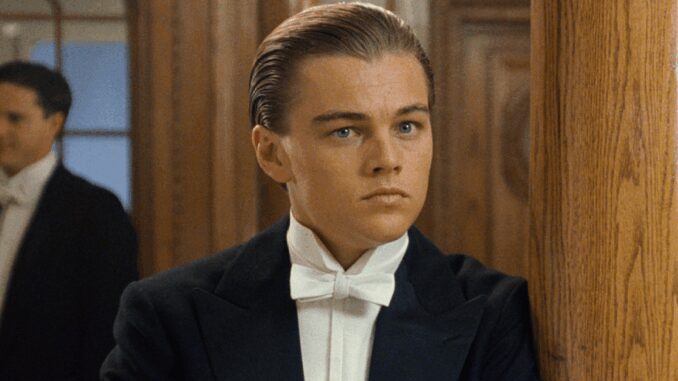
The Architect of Trust: How Leonardo DiCaprio Builds His Pantheon of Directors
Hollywood’s gilded gates are notoriously difficult to breach, and securing a leading role under the aegis of a top-tier director often feels less like a professional endeavor and more like an alchemical quest. Yet, among the pantheon of stars, one name consistently occupies the most coveted positions: Leonardo DiCaprio. He is not merely an actor of immense talent, but a strategist, a collaborator, and an artist whose method of securing roles with cinematic titans like Martin Scorsese, Quentin Tarantino, Christopher Nolan, and Alejandro G. Iñárritu transcends the conventional audition. DiCaprio doesn't just get roles; he earns them, not through overt lobbying or performative desperation, but by cultivating an unbreakable trust, offering a deeply researched vision, and promising an unwavering commitment that transforms the director-actor dynamic into a profound partnership.
It begins not with a performance, but with an excavation. Long before a director formally casts him, DiCaprio approaches a script less like a text to be memorized and more like an ancient artifact awaiting decipherment. He is known for his meticulous, almost academic, deep dives into character and narrative. This involves extensive research – delving into historical contexts, psychological profiles, and obscure literary references that might inform the role. He doesn't just read the words; he understands the ecosystem from which they spring. When he first engages with a director, it's not to ask, "What do you want?" but to offer, "Here’s what I’ve found, here’s what I believe this character demands, and here’s how I envision bringing it to life." This intellectual rigor, a fervent correspondence with the material, signals to a director that DiCaprio is not merely seeking a job, but a shared artistic journey. He brings a fully formed, albeit malleable, perspective to the table, demonstrating that his investment is already profound.
Beyond this initial intellectual engagement, the 'audition' transforms into a symposium. DiCaprio doesn't walk into a room to perform scenes cold, hoping to impress. Instead, he arrives prepared to articulate a compelling, fully formed vision for the role, a vision born of his exhaustive research. He isn't auditioning for a director; he's proposing a collaborative blueprint. Directors, particularly those with a singular artistic voice, crave partners, not just employees. They seek actors who will elevate their material, who will challenge and surprise them, and who will champion the integrity of the project. DiCaprio provides this assurance. He articulates his understanding of the director's unique cinematic language, demonstrating not only his comprehension of the specific project but also his respect for their broader oeuvre. This translates into a mutual understanding – a shared architectural plan where the actor isn't just a bricklayer but a co-architect, capable of contributing to the structural integrity and aesthetic vision of the entire film.
Once the role is secured, DiCaprio’s commitment deepens into an almost monastic devotion, a testament that solidifies the trust for future collaborations. His preparation is legendary: the physical transformations, the immersion in often brutal real-world conditions, the relentless pursuit of emotional authenticity. The icy rivers of The Revenant were not just sets; they were extensions of his self-imposed crucible. The nuanced ticks of Howard Hughes in The Aviator were the product of meticulous study. This level of dedication, bordering on method acting without ever fully sacrificing control, reassures directors that their vision, however ambitious or perilous, will be realized with unflagging intensity. They know DiCaprio will commit not just his talent, but his entire being to the role, pushing boundaries and enduring hardships to deliver performances that are not merely believable but visceral, transformative experiences. This unwavering commitment is the ultimate currency, building a reservoir of trust that directors will draw upon for years, knowing that once DiCaprio is in, he is all in.
This deliberate cultivation of directorial trust is not a one-off maneuver; it’s a career-long strategy, a master chess player moving pieces across the cinematic board. DiCaprio has famously eschewed typecasting and commercially safe bets, consistently opting for challenging roles with auteur directors, even if it meant waiting years for the right project. This demonstrates to directors that he prioritizes artistic integrity over fleeting fame or financial gain, further cementing his reputation as a serious artist. By consistently delivering critically acclaimed performances under challenging circumstances, he reinforces the perception that bringing him on board guarantees not only a powerful portrayal but also a profound commitment to the film's artistic success.
In essence, Leonardo DiCaprio secures roles with top Hollywood directors not through a superficial charm offensive, but by offering something far more valuable: a deep, intellectual partnership. He provides a director with a collaborator who has done their homework, who arrives with a vision, who will challenge and elevate the material, and who will commit body and soul to the realization of their shared artistic endeavor. He doesn't just ask for a seat at the table; he brings his own expertly crafted blueprint, his own carefully researched notes, and his own unwavering resolve. It is a masterclass in professional artistry, illustrating that in the highest echelons of creativity, trust, shared vision, and unyielding commitment are the true keys to unlocking the most coveted doors.